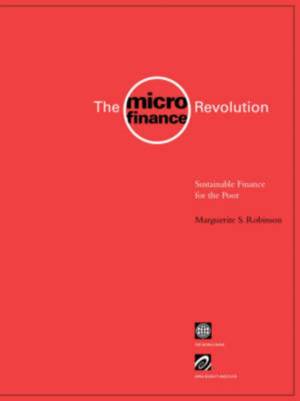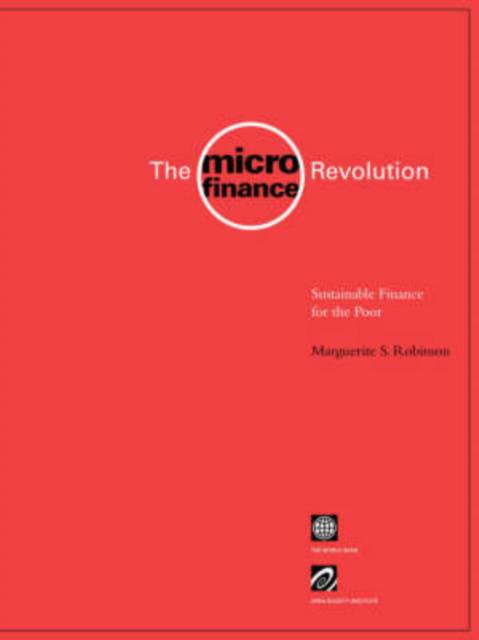
- Afhalen na 1 uur in een winkel met voorraad
- Gratis thuislevering in België vanaf € 30
- Ruim aanbod met 7 miljoen producten
- Afhalen na 1 uur in een winkel met voorraad
- Gratis thuislevering in België vanaf € 30
- Ruim aanbod met 7 miljoen producten
Zoeken
The Microfinance Revolution
Sustainable Finance for the Poor
Marguerite Robinson, Myilibrary
Paperback | Engels
€ 53,45
+ 106 punten
Uitvoering
Omschrijving
"..this book...gives us a history lesson and a guide on how to build commercial finance that fits the needs of the world's poorest majority. Policy makers, finance leaders, and anyone who wants to join this revolution in banking must read this book." Around the world, a revolution is occurring in finance for low-income people. The microfinance revolution is delivering financial services to the economically active poor on a large scale through competing, financially self-sufficient institutions. In a few countries this has already happened; in others it is under way. The emerging microfinance industry has profound implications for social and economic development. For the first time in history, capital is well on its way to being democratized. The Microfinance Revolution, in three volumes, is aimed at a diverse readership?economists, bankers, policymakers, donors, and social scientists; microfinance practitioners and specialists in local finance and rural and urban development; and members of the general public interested in development. This first volume, Sustainable Finance for the Poor, focuses on the shift from government- and donor-subsidized credit systems to self-sufficient microfinance institutions providing voluntary savings and credit services. "A magnificent work" Elizabeth Littlefield, CEO, Consultative Group to Assist the Poorest (CGAP) "A much-needed wake-up call for economists" David E. Bloom, Clarence James Gamble Professor of Economics and Demography, Harvard University "A major work that will unquestionably lie at the very center of microfinance literature" Robert Peck Christen, Senior Adviser, CGAP Secretariat; Academic Director, Microfinance Training Program, Naropa University "A seminal work" Ira W. Lieberman, former CEO of CGAP; Senior Manager, World Bank
Specificaties
Betrokkenen
- Auteur(s):
- Uitgeverij:
Inhoud
- Aantal bladzijden:
- 352
- Taal:
- Engels
Eigenschappen
- Productcode (EAN):
- 9780821345245
- Verschijningsdatum:
- 1/06/2001
- Uitvoering:
- Paperback
- Formaat:
- Trade paperback (VS)
- Afmetingen:
- 210 mm x 281 mm
- Gewicht:
- 820 g

Alleen bij Standaard Boekhandel
+ 106 punten op je klantenkaart van Standaard Boekhandel
Beoordelingen
We publiceren alleen reviews die voldoen aan de voorwaarden voor reviews. Bekijk onze voorwaarden voor reviews.











